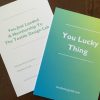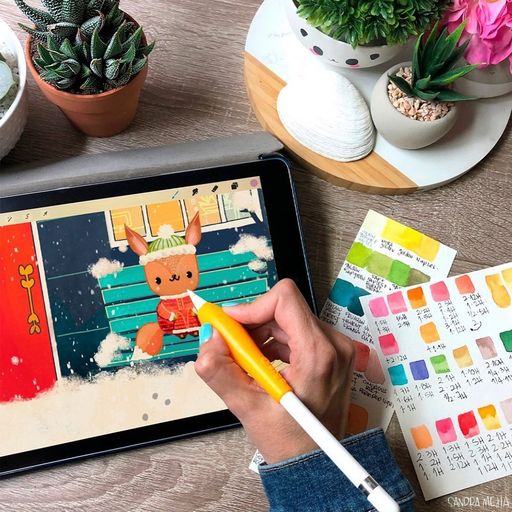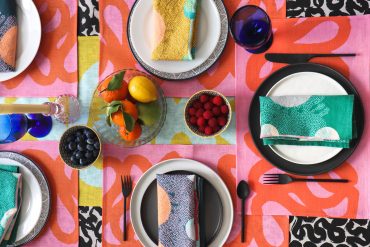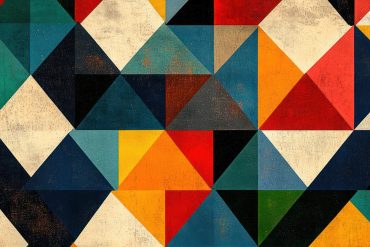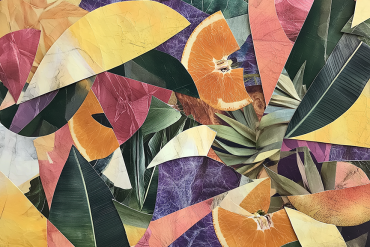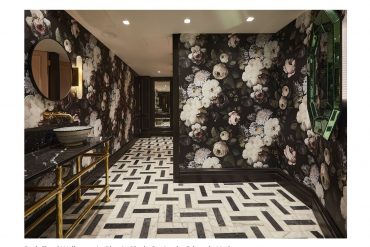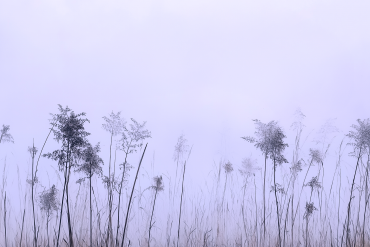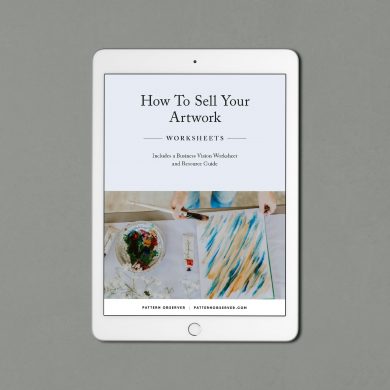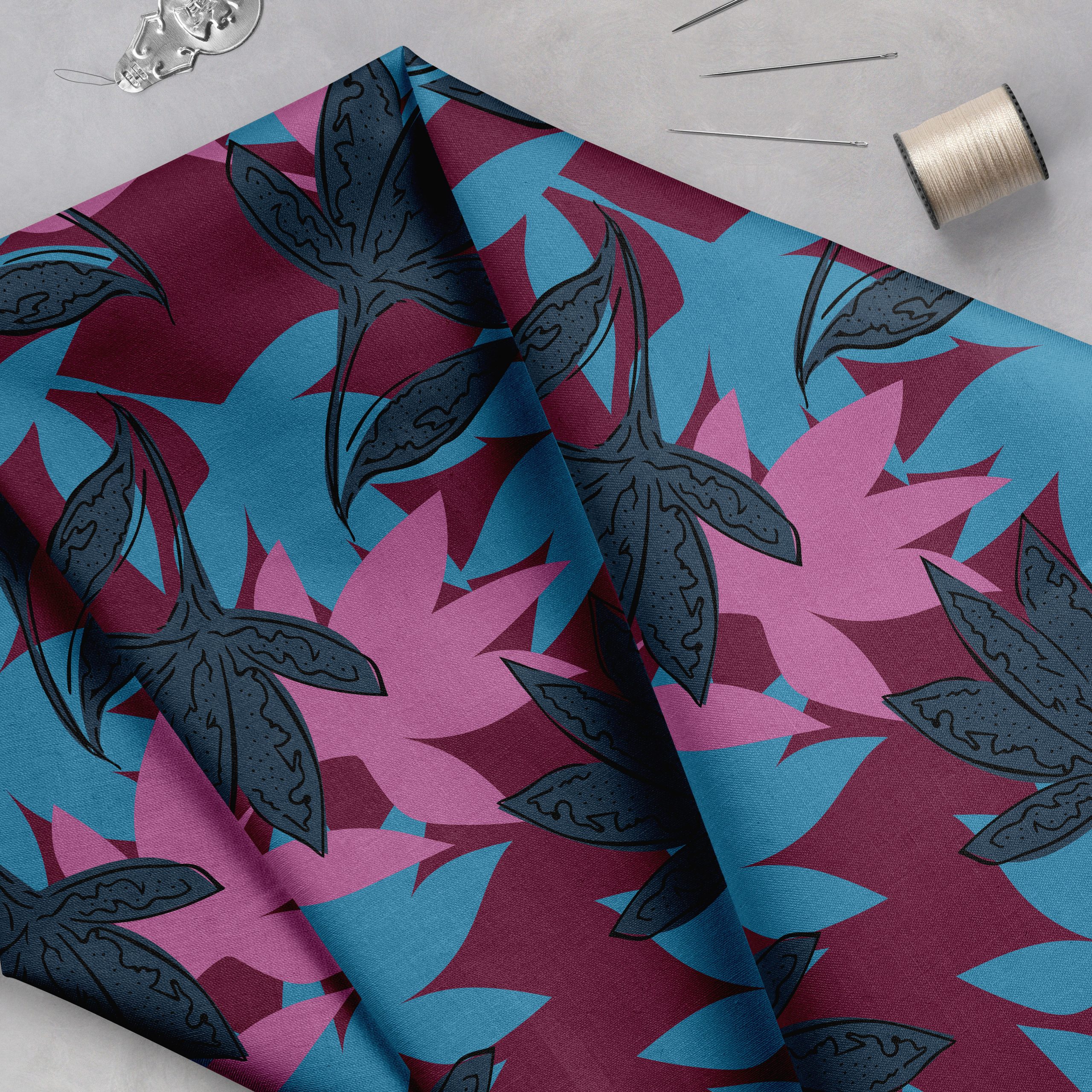Sandra Mejia (formerly Bowers) is a Colombian artist living in British Columbia, Canada whose portfolio consists of a magical world of illustrations, pattern designs, acrylic paintings, oil paintings, and toy sculptures. As a freelance Illustrator, Sandra’s art has been printed on puzzles, fabric, tote bags, greeting cards, journals, paper and gifts, and home decor products. Her most common motifs are adorable animals and nature scenes. Sandra loves to work with watercolors and she is a master with Procreate on the iPad. Because of all this knowledge, Sandra teaches on Skillshare and is a top teacher, check out all the classes she teaches right here! Sandra will share her wisdom on freelancing with us in the Textile Design Lab October 5th at 1pm EST. You will be able to ask Sandra anything you want about being a freelance entrepreneur. We hope to see you at the presentation and in the mean time, enjoy learning more about Sandra right here.
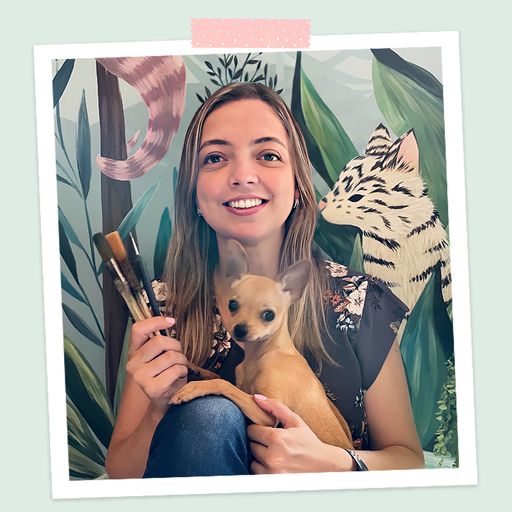
Sandra recently changed her last name and went back to her maiden name: Mejia (pronounced meh-hee-ah) so she has a new website: www.artbysandramejia.com and Instagram @artbysandramejia You can follow along with her news by signing up for her newsletter
Hi Sandra, Tell us about your education and how you formed your illustrative style.
I don’t know if “self-taught” is the correct term, since everything I’ve learned is from taking online classes from many talented teachers. I went to University and got a degree in Corporate Communications and Project Management, so I definitely didn’t get a degree in Illustration. I wouldn’t say I have one style. I work in different styles, but I believe that even then, there are still constant elements, color palettes and techniques that create similarities within my work and make them all belong to me and be identifiable as mine. The way I make art has evolved from many years of drawing daily and improving my skills constantly. At the beginning, and for many years, I was trying to make my art more commercial so I tried lots of different things. But it wasn’t until I started listening to my heart and making art that truly made me happy that I feel my style flourished and I started getting more clients. Now I’m focused on detailed, textured art that is stylized and whimsical; art that I hope makes people smile when they see it.
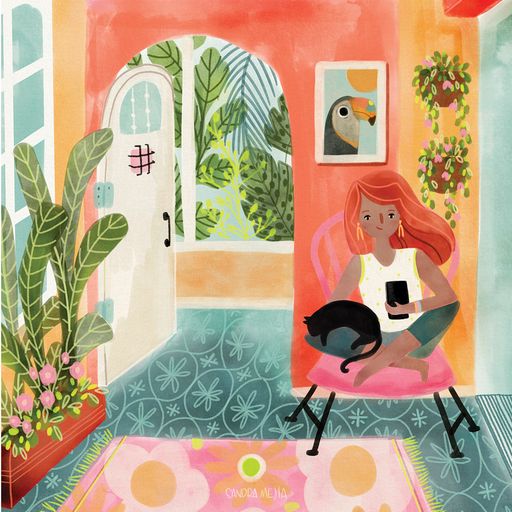
When did you start out on your own and how did you land your first client as a freelancer?
I had a corporate job in the non-profit sector in Colombia, and as much as I liked working on social projects, I wasn’t happy with my job and my life, so I decided to quit, sell my car, take my savings and go to Buenos Aires, Argentina to study something creative. I had so much free time that I started drawing and sharing my drawings in a blog, never thinking this would end up being my full time job! My first freelance job happened without even thinking! One of the illustrations on my blog caught a Colombian Art Director’s eye, and I got my first paid commission to illustrate the set for a Fashion TV show and some characters for their trailer videos. At that point, I knew this was my path and haven’t stopped drawing since then. You never know who is looking, so don’t be afraid to share your art even if you’re just starting. Look at my first drawing that got me my first job! This was around 2011 or so. My art has changed a lot since then!
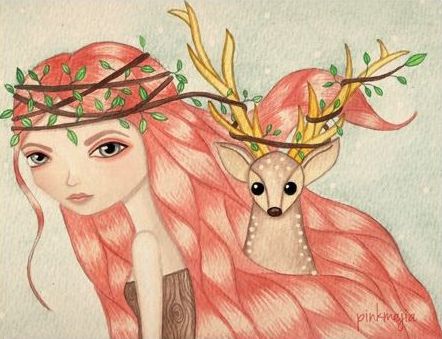
What industry have you sold or licensed the most artwork in?
Probably fabrics, but not just bolt fabric for quilting, also textile designs for kids products, home decor and even swimwear.
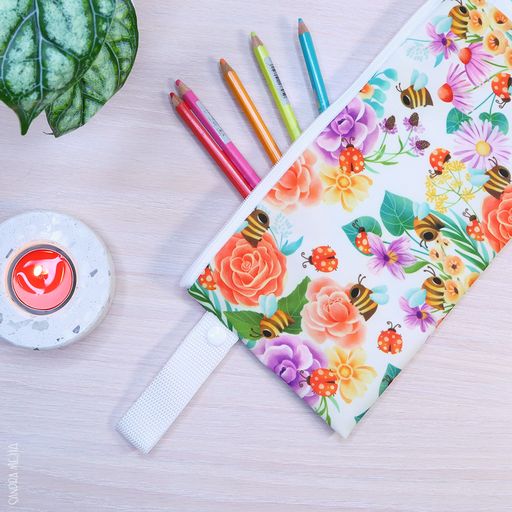
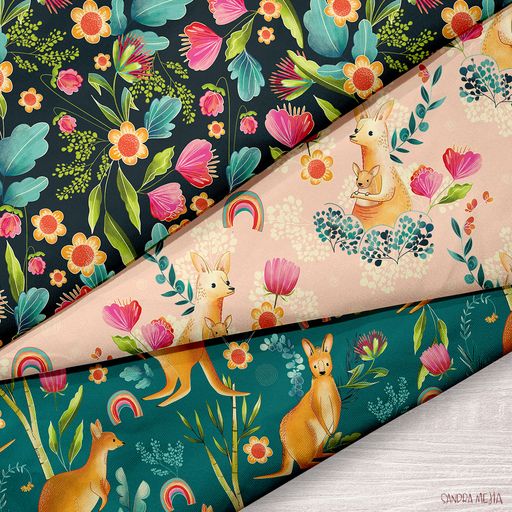
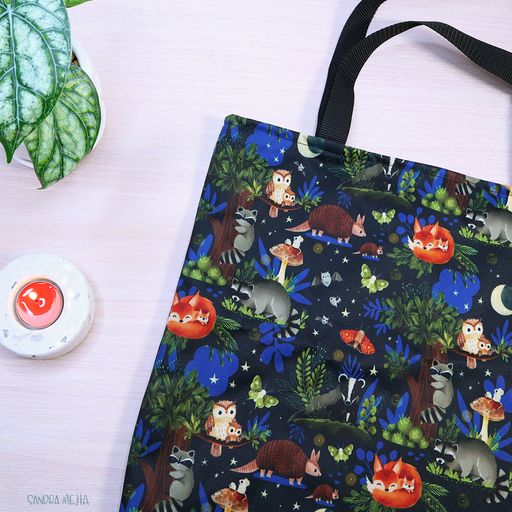
Do you have any tips for artists reaching out to clients?
-Do your homework before submitting to a client: make sure that your style and art fit in with their products and brand and write a personalized message so that they see you’ve done the homework. Research the Art Directors name so that you can direct the message to them and not to “whomever”.
-Don’t be disheartened if they don’t reply. Just keep trying until they say no. And even when they say no, it’s nothing personal, it’s just that your art is not the right fit for them or not the right fit at this time. Just reach out, the worst thing that can happen is that they say no, but there’s a chance they will say yes!
-Show only your best work, and always strive to send them better and better art so that one day they’ll be so amazed by it that they can’t say no.
-If they have Submission Guidelines on their website, follow them word by word, that shows that you’re a professional and can follow a brief or instructions.
-Mention that you’re open to different ways of working. I always mention that I license, sell outright or work on commissions.
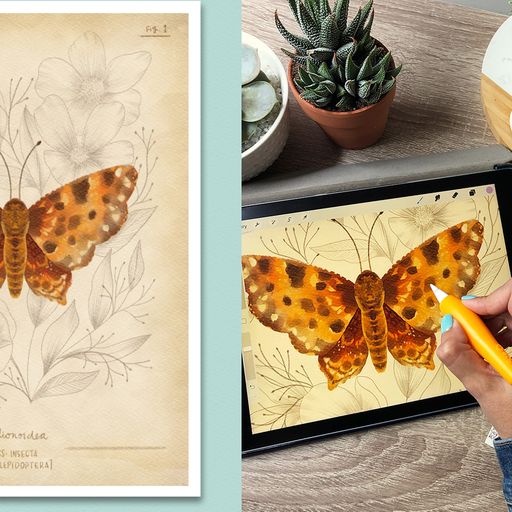
Tell us about your toy designs.
My mind has always been creating characters and colorful worlds and I found polymer clay as the perfect way to bring them to life in a 3D form. I made some random toys but then settled on creating what I call The Munguitos (Man-gee-toes) which is my chihuahua’s nickname but doesn’t have a real meaning. I sold most of them in Galleries in BC, Canada but they’re a work of love because they take very long to make and I haven’t had much time for personal projects in the last couple of years. Now I’m experimenting with making the Munguitos in 3D using Nomad Sculpt and Procreate on my iPad but I still have a ways to go! Someday, I hope to license them so they’re mass produced toys or a video game or a kids movie.
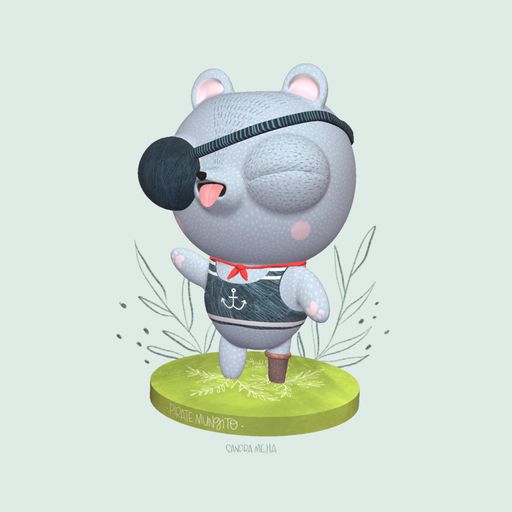
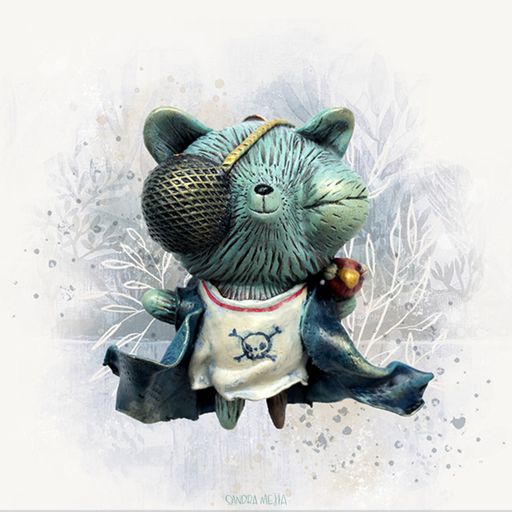
You are a top skillshare teacher, congrats! How did you get started teaching on this platform? What is the top advice you find yourself constantly repeating to students?
I was invited by Skillshare to teach after I took one of their Surface Design classes and my student project won a contest and got lots of attention on the platform. I put it off for a while because I was worried about my accent and about not being good enough to teach, but I decided to try it with something that was very close to my heart: teaching how to paint controlled watercolours to create whimsical illustrations. I couldn’t find much information online about painting this way so I figured I would just share how I did it. I never imagined it would become so popular. This is when I decided that I wanted to show people how I did everything in my business because, even if it’s the same subject, we all have different approaches to things so people can benefit from seeing all those perspectives. My top advice is to always stay true to yourself, make art that makes you happy and practice every day, or as much as you can, so you can improve your art. The best way to make art a successful business is to be persistent, keep showing up and work really hard at becoming the best version of yourself. The question I get asked the most is about getting one-on-one advice about specific aspects of the student’s artwork or business, and that’s why I’m creating a personalized Mentorship Program that gives me the opportunity to work more closely with students.
What have been the biggest challenges you have faced in your career and how have you overcome them?
I think my biggest challenge was wanting to make a living out of being a freelance Illustrator and not knowing anything about the licensing or freelancing business. 10 years ago there wasn’t too much information available about this industry and Illustration wasn’t a very known thing in Colombia. So I decided to learn everything I could and joined every online class that I found, read books and articles, paid for consultations with industry leaders and connected with really nice illustrators that I found online. I’m very grateful about the industry in general because most people are very open and willing to help and I think if we’re all like that, it just benefits us all.
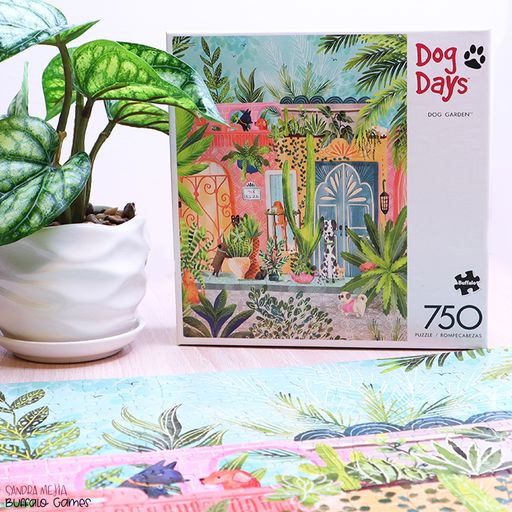
Your presentation with the Textile Design Lab will focus on freelance life and business development, can you share any strategies with our readers that you use for growing your business and expanding opportunities to license or sell your artwork. Sandra will present on October 5th at 1pm EST in the Textile Design Lab.
Exhibiting at trade shows, like Blueprint in New York gave me the opportunity to work with really amazing and big clients, it’s an expensive venture so make sure you’re ready to do it, but for me it was very worthwhile. Try to be in many different places so that you get exposed to more people. You don’t have to rely just on social media, try guest blogging, teaching, creating a YouTube channel, attending live events, networking in your own city, working with other artists, anything that makes your art visible because you never know where clients are. Be proactive and contact potential clients, don’t wait for them to find you. Don’t focus on big companies only, medium and smaller clients are great to work with too and once you establish trust and long working relationships with them, they will usually stick to working with you. Make a plan that determines what you need to do to make your business grow, how to do it and when and then stick to that plan, being organized and persevering is a huge part of being successful in this business. Be easy to work with so your existing clients keep coming back: always deliver work on time, make organized files, respond to emails in a professional and timely manner and do anything you can to make the Art Director’s work easier. And as an additional note, on the personal side: don’t take rejection personally or compare yourself with others, that’s going to stop you from creating and the more you create, the more you have to show to prospective clients. So focus on creating more instead of worrying about where you’re at at the moment. If you keep showing up, it will inevitably move you forward in your path.
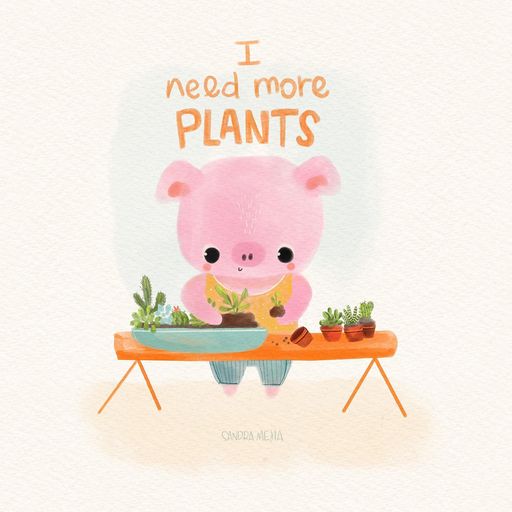
Sandra recently changed her last name and went back to her maiden name: Mejia (pronounced meh-hee-ah) so she has a new website: www.artbysandramejia.com and Instagram @artbysandramejia You can follow along with her news by signing up for her newsletter

